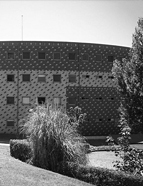

Finally, in this generation, Elvira Mea (b. 1948) is also worthy of mention: from a degree thesis on Sephardism in Portuguese Culture (1971, publ. 1974), she soon turned her attention to research in the fields of History of the Inquisition and New-Christians. She was awarded her PhD in 1990, with a thesis on the Inquisition of Coimbra in the 16th century (supervisor Manuel Augusto Rodrigues, UC; thesis published in 1995). Her previous and subsequent bibliography is extensive, including a biography of Captain Artur Carlos de Barros Basto [1887-1961] (in collaboration with Inácio Steinhard, 1998) and a dictionary of Judaism in Portugal (2010).
Despite what has already been said, it was not always easy for the subsequent generations to set a trend of Modern History. The first half of the 80s would see some rather autonomous names ' take the stage' in relation to the more veteran sector of modernists. One of the first was Ivo Carneiro de Sousa (b. 1957, in office 1981 ff.), who successively focused on questions of mercantile arithmetic and the History of spirituality in Portugal in the 15th and 16th centuries, on which he wrote a thesis, between 1984 and 1993, for pedagogical aptitude and scientific capacity examinations and a doctoral dissertation. Later on, with a penchant for the History of the Misericórdias [charitable institution], the late 20th century would see him increasingly interested first in African themes, then in Portugal's relations with Southeast Asia. At a domestic level, he was the great architect behind the Honoris Causa Doctorates of D. Carlos Ximenes Belo, Xanana Gusmão and José Ramos-Horta (2000). However in 2005, a somewhat badly explained story dictated his departure from the UP. Today he lives, works and teaches between Macao and Hong Kong.
Inês Amorim (b. 1958, also in office since 1981) belongs to the same generation. At an initial stage, her interests also lay with rurality. In 1986 she wrote a thesis for pedagogical and scientific examinations on the monastery of Grijó in the 16th century. Ten years later she would defend a doctoral thesis on Aveiro and its Provedoria [Ombudsman office] during the Ancien Régime. More recent phases have seen a focus on the history of the coast, ports and port structures, resources and ecology, in a highly international career and with points of contact with that of Amélia Polónia, who will be discussed further ahead.
